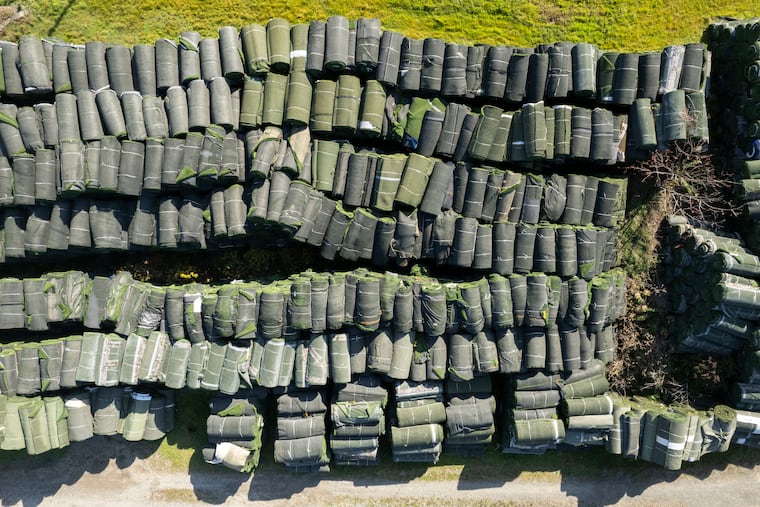Bankruptcy of recycling company results in large amounts of discarded artificial turf left throughout the state.
Re-Match, a Denmark-based recycling firm, aimed to establish the United States’ first artificial turf recycling facility in Schuylkill County, Pennsylvania, with plans to open by the end of 2024. The initiative was met with optimism among environmental advocates, who welcomed efforts to address the toxic legacy of artificial turf, often containing PFAS, or per- and polyfluoroalkyl substances, known for their persistence in the environment and potential health risks, including cancer and respiratory issues.
However, Re-Match’s ambitious project has encountered a significant setback. In June, the company filed for bankruptcy in the U.S. Bankruptcy Court for the District of Delaware, effectively terminating a venture that had ignited hopes among local officials and residents. The company had accumulated around 11,000 tons of aging turf across the state, including at a farm in Nicholson where nearly 6,000 tons are left stored.
Environmental experts view Re-Match’s failure as indicative of a broader issue. Over years, municipalities have resorted to disposing of old turf improperly, leaving both the quantity and specific locations of discarded materials largely untracked by the Pennsylvania Department of Environmental Protection (DEP). With several sites teeming with chemical-laden turf, there is an increasing urgency to determine how to manage this waste.
Insufficient oversight has allowed these discarded fields to linger, posing ongoing risks of contamination to local groundwater and agricultural land. Many experts, including former EPA officials, have voiced concerns over the damaging consequences of unregulated turf disposal, expressing skepticism about the commitment of turf manufacturers towards sustainable recycling practices. While some firms may profess to have developed PFAS-free products, the validity of these claims remains questionable.
Though the synthetic turf recycling industry remains embryonic, some entities have managed to establish successful recycling operations. For instance, in Rockland, Massachusetts, the company Turf Recycling USA has been actively converting discarded artificial fields into materials suitable for reuse. They process the turf to separate rubber and sand infill, subsequently reintegrating these materials into the manufacturing pipeline.
Re-Match’s prior promise appeared to hold substantial potential. In 2021, then Governor Tom Wolf heralded their efforts as a meaningful response to the environmental challenges posed by old turf fields. Unfortunately, the reality of Re-Match’s operations unraveled under scrutiny when it struggled to meet contractual commitments, leaving behind considerable waste and outstanding financial obligations.
As municipalities grapple with the enduring presence of discarded turf, the challenge of safe disposal looms large. The DEP categorizes the accumulated artificial turf as solid waste, posing a public nuisance that necessitates immediate attention. While Re-Match went through bankruptcy proceedings, environmental regulators are left contemplating the cleanup of multiple sites plagued by the remnants of an unmet recycling vision.
The synthetic turf industry, historically recognized for its promise of a durable playing surface, now faces mounting scrutiny regarding its environmental impact and commitment to sustainable practices. As interest in recycling initiatives grows, it remains paramount for stakeholders to ensure transparency and accountability in addressing the ecological ramifications of synthetic turf disposal while fostering genuine pathways to environmental sustainability.






